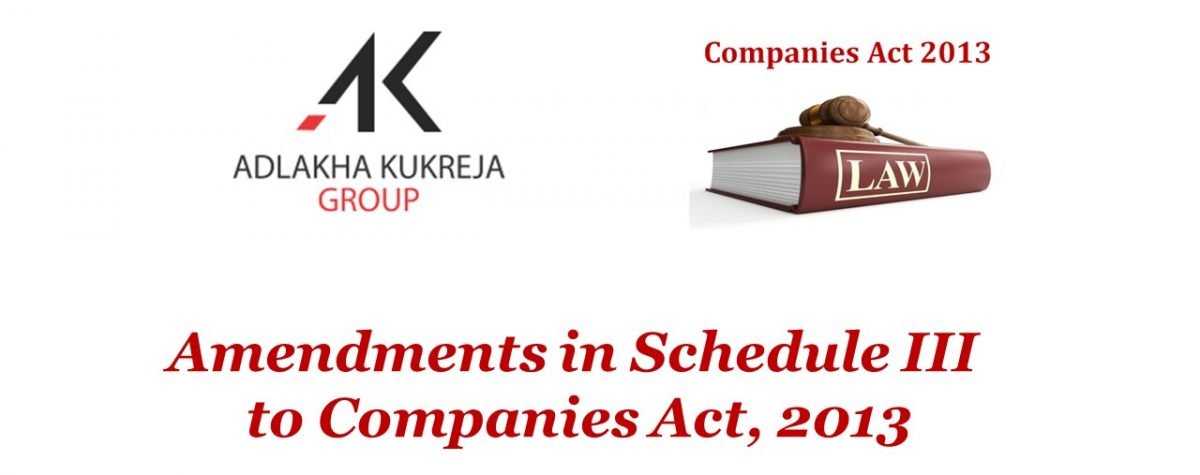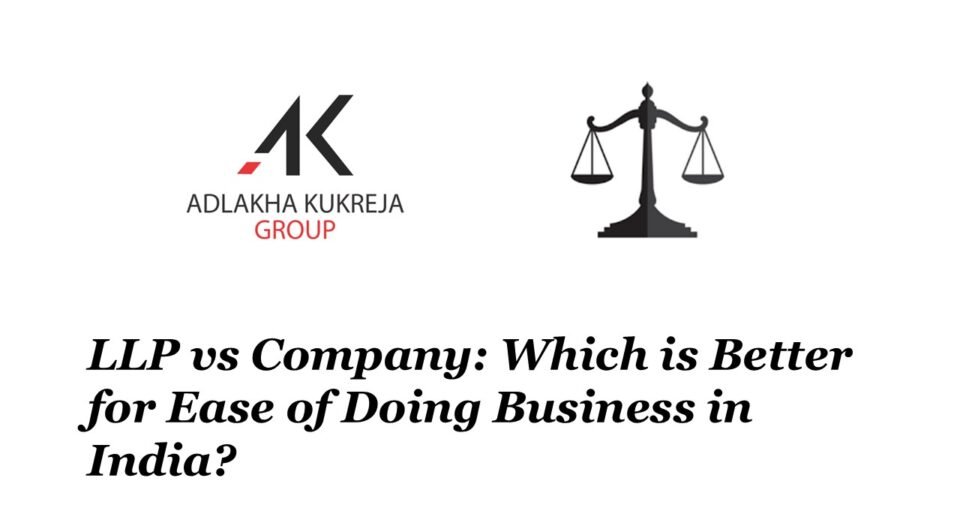
Which ITR Should I File?
April 30, 2022
FAQs related to PAN, Aadhar & Income Tax
May 4, 2022The ministry of corporate affairs (MCA) has introduced an amendment vide Notification G.S.R. 207(E) dt. 24th March 2021 in the Schedule III to the Companies Act, 2013 which shall be effective from the 1st day of April 2021. This amendment has created the responsibility of additional disclosure which are to be reported while preparing the financial statement of an entity. In this article, we shall briefly cover the important changes which have been introduced lately.
Mandatory Rounding Off: It has been made mandatory for the companies to round off their figures on the basis of their ‘Total Income’. The rounding off shall be done to the nearest hundreds, thousands, lakhs or millions or decimal thereof in the case where the total income of the company is less than Rs 100 Crore. And in all other cases, the rounding off shall be done to the nearest lakhs, millions or crores or decimal thereof.
Change under the heads of Balance Sheet: The word ‘Tangible Assets’ has been replaced with Property, Plant and Equipment and Intangible Assets have been inserted after the words ‘Property, Plant & Equipment. Also the head ‘Lease Liabilities’ shall be shown under both the heads of Non-Current Liabilities and Current Liabilities.
Disclosure of Promoter’s Shareholding: The companies shall now have to disclose shares (of each class) held by their promoters at the end of the year along with any % change (if any) during the year.
Change in the presentation of ‘Current maturities of long term debt’: ‘The ‘Current maturities from long term borrowings’ shall now be disclosed separately under the heading ‘Short Term Borrowings’ instead of ‘Other financial liabilities’.
Creditor’s Ageing Schedule: The entity is now required to classify its creditors in four parts
(i) MSME
(ii) Others
(iii) Disputed Dues-MSME and
(iv) Disputed Dues-Others along with their ageing schedule.
This ageing shall be provided in the form of less than 1 year, 1-2 years, 2-3 years and more than 3 years. Also to match the column with the financial statements or notes, two additional columns “Unbilled” and “Not due” shall also be disclosed before the ageing column.
Change in the presentation of ‘Security Deposits’: The ‘Security Deposits’ shall now be disclosed separately under the heading ‘Other Non-Current Assets’ instead of ‘Long Term Loans & Advances’ in case of AS financials and The ‘Security Deposits’ shall now be disclosed separately under the heading ‘Other financial assets’ instead of ‘Loans’ in case of IND AS financials.
Debtor’s Ageing Schedule: The entity is now required to classify its debtors in six parts
(i) Undisputed Trade Receivable-Considered Good
(ii) Undisputed Trade Receivable-Which have a significant increase in credit risk
(iii) Undisputed Trade Receivable-credit impaired
(iv) Disputed Trade Receivable-Considered Good
(v) Disputed Trade Receivable-Which have a significant increase in credit risk and
(vi) Disputed Trade Receivable-credit impaired along with their ageing schedule.
Ageing Schedule of trade receivables shall be prepared in a tabular format as notified by MCA (classified as less than 6 months, 6months to 1 year, 1-2 years, 2-3 years, and more than 3 years). Also to match the column with the financial statements or notes, two additional columns “Unbilled” and “Not due” shall also be disclosed before the ageing column.
Borrowing from banks and Financial institutions: Company is now required to disclose the usage of the amount in cases where an amount has been borrowed from the bank or financial institutions for any specific purpose but such amount was not used for such purpose.
Revaluation of Property, Plant and Equipment (PPE): Where a company has done any revaluation to its PPE, the company must disclose whether such revaluation was done by a registered valuer (as defined in the Companies Act) or not.
Tangible & Intangible Assets: Companies are now advised to make a reconciliation statement in respect of gross and net carrying amount of each class of asset (at the beginning and at the end of the reporting period) showing additions, disposals, acquisitions, revaluations and other adjustments.
Title Deeds of Immovable Property: The Company is now required to provide the details of all immovable property along with their title deeds. And also the company has to provide the reason where title deeds are not in the name of the company (Except where the company is the lessee and lease agreements are duly executed). And the cases where such properties are held jointly with others must be disclosed to the extent of the company’s share.
Loans and Advances granted to promoters, KMPs and Related Parties: The company is required to disclose its loans and advances in the nature of loans granted to promoters, directors, KMPs and related parties (held severally or jointly with any other person) that are repayable on demand or without specifying any terms or period of repayment. Also, it must be shown how much of these loans constitute (in %age) the total loans and advances reflected in the financials.
Benami Property held: The Company shall disclose the Benami property held by it along with the details of the properties, beneficiaries and the proceedings ongoing about the property under the Benami Transactions (Prohibition) Act, 1988.
Wilful Defaulter: If the company is declared as a wilful defaulter by any bank or financial institution or another lender then the company shall disclose this fact along with the Date of declaration & details of default.
Relationships with Struck Off Companies: The Company is required to disclose whether it has any relationship with such companies whose name has been struck off under Section 248 of the Act along with the name of such company, transaction entered, nature of the transaction, and balances of such parties in the year-end.
Registration of Charges: The Company is now required to disclose details about any charges or satisfaction which is yet to be registered with the Registrar of Companies beyond the statutory period along with the reasons thereof.
Ratios: Companies are now required to present prescribed accounting ratios. Though it must be ensured that there remains a parity in the items included in the numerator and denominator in the previous year and current year so that meaningful comparison could be done. Along with that now the company is required to comment on the reason behind the variance in ratio as compared to the previous year (if such variance is more than 25%).
Undisclosed Income: In the case where a company has surrendered or disclosed any income (as a result of some assessment under the Income Tax Act, 1961) which is never recorded in the books then companies must disclose such income in the books of accounts (unless there is immunity under any scheme).
Crypto-Currency and Virtual Currency: Where the company is involved in trading or investment of Crypto or Virtual Currency during the financial year, then such companies must disclose their profit or loss made on such transactions along with the amount of currency held by them at the reporting date. And also they must disclose the deposits or advance received by them from any person for the purpose of trading and investment in crypto and virtual currency.
You can always visit our website www.akcoindia.com/blog for reading such important information. And if you feel you need any assistance then you may just mail us at contact@akcoindia.com.
You may find our other blogs below:
Who should file an Income Tax Return (ITR)?: Click here
Annual Information System: Click here
All About 15CA 15CB: Click here
Source Info: https://www.incometax.gov.in/




